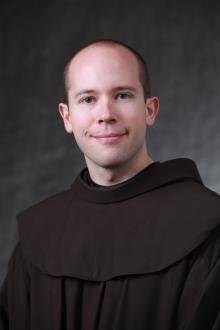With the 2016 Summer Olympics underway in Rio de Janeiro, Brazil, my attention is on the world-class athletes and competitions that display the best in physical prowess and skill. Although the history of the modern Olympics includes some painful memories (one recalls the hostage crisis and murder of Israeli athletes at the 1972 Games in Munich and the bombing during the 1996 Atlanta Olympiad), the premise of this global gathering is peace and good will among diverse peoples and nations. That is reason enough to celebrate the triumphs and commiserate over the losses.
As a longtime distance runner, I have special admiration for the women and men who are clearly the best in the world on both the track and marathon course. This solidarity is strong among runners because, in contrast to sports like basketball or soccer, we frequently participate in races in which both the most elite competitors and ordinary weekend warriors toe the line side by side at the start and share a common goal: the finish line.
There is a spirit of inclusion in the sport of running that is hard to match in other athletic competition. The fastest runner runs the same course and shares in the same spirit of the event as the last person to cross the finish line. In most races, one doesn’t have to be the best or the greatest to participate, but needs only the commitment to stay on course, endure the highs and lows, and move toward that common end.
In reflecting on distance running in particular, I began thinking about the church. It seems to me that running a local road race offers an apt metaphor for what it means to be a Christian and to live one’s faith. I am certainly not the first to make this connection. There are several passages in the New Testament where authors draw on athletic imagery to describe the experience of discipleship and Christian faith. In the letters to the Philippians (2:16), Galatians (2:2; 5:7) and 2 Timothy (4:7), to name a few, we see running used as a metaphor for the early Christian community of believers.
In light of the controversy over the discussion of gradualism (a theological position that recognizes that virtuous living develops gradually and over time) during the meetings of the Synod of Bishops on the family in 2014 and 2015, the athletic and scriptural metaphor of running a road race is particularly timely. Rather than envisioning a church composed only of elites who are able to exercise virtue at the highest level, something akin to a “moral Olympics,” we should recall that all the baptized, whatever their particular state of life, are running the same course of Christian discipleship. Looking up to the saints and other exemplars of Christian living offers ordinary believers a source of inspiration and a reminder of our common goal. But no one should be excluded from the course because of his or her weakness or relative pace.
The Olympians motivate me to work at being a better runner, but my fellow ordinary athletes also inspire and encourage me to keep going. Anybody who has run a long road race or even a small-town 5 K fun run knows this feeling of inclusivity and spirit of encouragement. When the faster runners finish, they often stick around to cheer on those still on the course. Along with shouts of encouragement, strangers on the sidelines typically clap and offer strangers high-fives. Then everybody gathers at the post-race party to celebrate the accomplishments of all, the most important of which is simply completing the course.
Why can’t our church and communities of faith be more like a local road race? Why can’t we focus more on journeying with our sisters and brothers wherever they might be, cheering one another on with the love of Christ? The author of the Letter to the Hebrews even ties the race of faith to the “great cloud of witnesses” that cheers us on in our journey (Heb 12:1). We all share a common course, a path laid out before us by Christ in the Gospels, which began at baptism and continues on ahead of us. May the Olympics this summer serve as an opportunity for Christian women and men to be inspired not only in athleticism but also in faith. To paraphrase St. Paul, if we build one another up and encourage one another (1 Thes 5:11), we will not have run the race of faith in vain, no matter our individual pace or finishing place.








